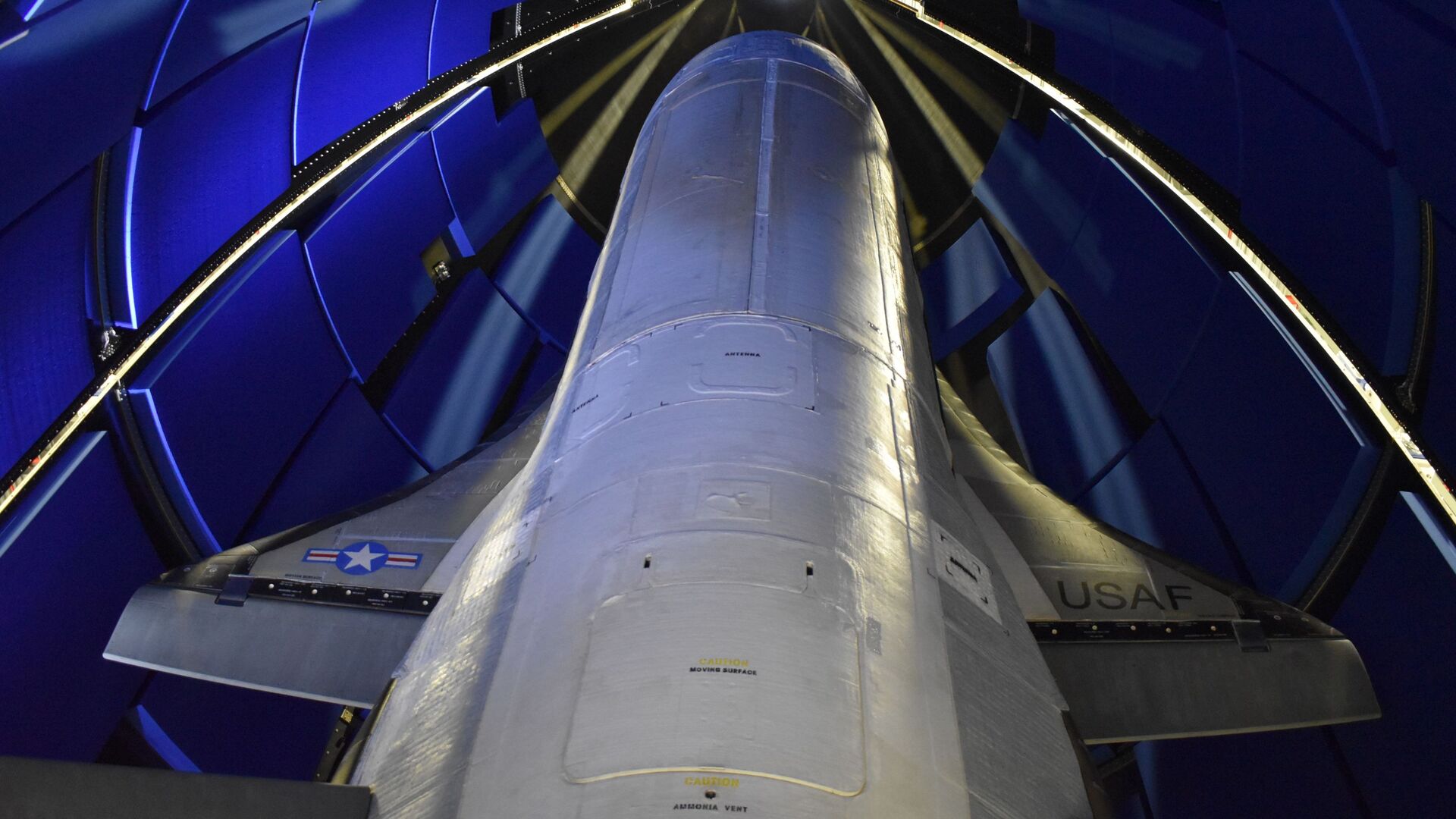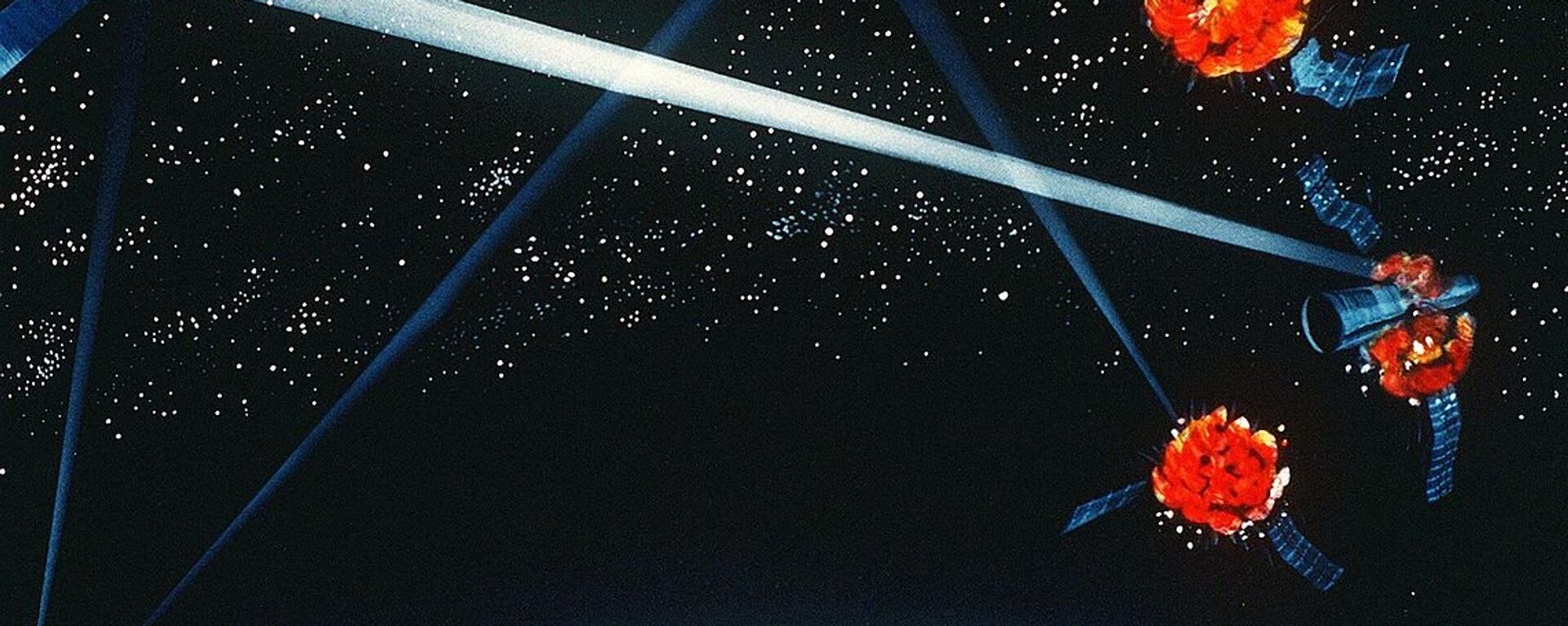https://sputnikglobe.com/20230612/us-space-force-needs-systems-to-disrupt-degrade-other-nations-satellites---general-1111093249.html
US Space Force Needs Systems to Disrupt, Degrade Other Nations' Satellites - General
US Space Force Needs Systems to Disrupt, Degrade Other Nations' Satellites - General
Sputnik International
The US Space Force needs to develop capabilities to degrade the space-based capabilities of other, potential adversary nations, Vice Chief of Space Operations Gen. David Thompson told a meeting at the Mitchell Institute for Aerospace Studies on Monday.
2023-06-12T17:57+0000
2023-06-12T17:57+0000
2023-06-12T17:57+0000
military
david thompson
us space force (ussf)
us
https://cdn1.img.sputnikglobe.com/img/107923/20/1079232099_0:160:3072:1888_1920x0_80_0_0_7ca9142ee382f7c8daa980de4a4ac625.jpg
"We are certainly going to need to disrupt, degrade and deny (deceive) the space capabilities of adversaries," Thompson told the podcast meeting. "We are in the next chapter of the Space Force." The Space Force is handing over the mission of tracking all satellites and debris and other activity in space to other US agencies in order to concentrate on its primary mission of maintaining space dominance and protecting US space assets, the general explained. The force was also looking at ways of putting more advanced sensors and program upgrades on existing satellite systems to improve and expand their capabilities in global surveillance and weather forecasting for US surface military forces, Thompson added.Thompson also noted that the US Space Force will need to take over the role of providing ground surveillance imagery to US combat forces around the world from the National Reconnaissance Office (NRO).The Space Force was looking to replace the current global system of weather surveillance for the US armed forces from a small number of relatively large and lavishly equipped satellites with a far more survivable much larger constellation of small satellites in low Earth orbit that would offer far superior prospects for survivability and resilience in the event of attacks by hostile nations, Thompson said.The Space Force was also developing reconnaissance capabilities to get tactical information to warfighters in combat ground operations in real time far more quickly than current systems operated by the National Reconnaissance Office were capable of doing, Thompson added.
https://sputnikglobe.com/20210618/us-space-force-operations-chief-confirms-working-on-space-based-directed-energy-weapons-1083178576.html
Sputnik International
feedback@sputniknews.com
+74956456601
MIA „Rossiya Segodnya“
2023
Sputnik International
feedback@sputniknews.com
+74956456601
MIA „Rossiya Segodnya“
News
en_EN
Sputnik International
feedback@sputniknews.com
+74956456601
MIA „Rossiya Segodnya“
Sputnik International
feedback@sputniknews.com
+74956456601
MIA „Rossiya Segodnya“
us, us space force, david thompson, aerospace, space wars
us, us space force, david thompson, aerospace, space wars
US Space Force Needs Systems to Disrupt, Degrade Other Nations' Satellites - General
WASHINGTON (Sputnik) - The US Space Force needs to develop capabilities to degrade the space-based capabilities of other, potential adversary nations, Vice Chief of Space Operations Gen. David Thompson told a meeting at the Mitchell Institute for Aerospace Studies on Monday.
"We are certainly going to need to disrupt, degrade and deny (deceive) the space
capabilities of adversaries," Thompson told the podcast meeting. "We are in the next chapter of the Space Force."
The
Space Force is handing over the mission of tracking all satellites and debris and other activity in space to other US agencies in order to concentrate on its primary mission of maintaining space dominance and protecting US space assets, the general explained.
The greatly expanding volume of launchings of satellites in large numbers to create a new, far more numerous, survivable and resilient constellations of orbiting space assets meant that the Space Force was close to its maximum capacity in its volume and rate of launchings, Thompson said.
The force was also looking at ways of putting more advanced sensors and program upgrades on existing satellite systems to improve and expand their capabilities
in global surveillance and weather forecasting for US surface military forces, Thompson added.
Thompson also noted that the US Space Force will need to take over the role of providing ground surveillance imagery to US combat forces around the world from the National Reconnaissance Office (NRO).
"We are looking to put sensors on existing satellites to proliferate capabilities in real time forecasting," Thompson told a meeting at the Mitchell Institute for Aerospace Studies. "We are looking at ways to do this mission differently."
The Space Force was looking to replace the current global system of weather surveillance for the US armed forces from a small number of relatively large and lavishly equipped satellites with a far more survivable much larger constellation of small satellites in low Earth orbit that would offer far superior prospects for survivability and resilience in the event of attacks by hostile nations, Thompson said.
The Space Force was also developing reconnaissance capabilities to get tactical information to warfighters in combat ground operations in real time far more quickly than current systems operated by the National Reconnaissance Office were capable of doing, Thompson added.



